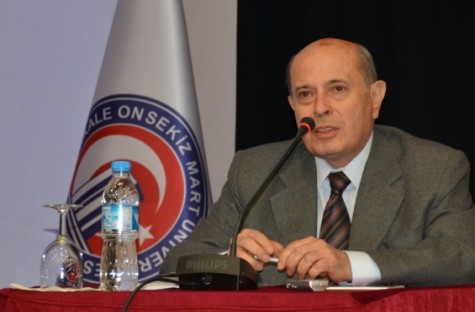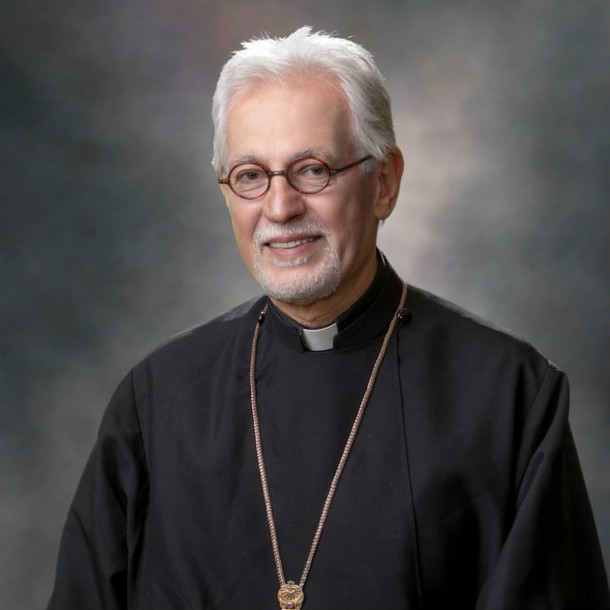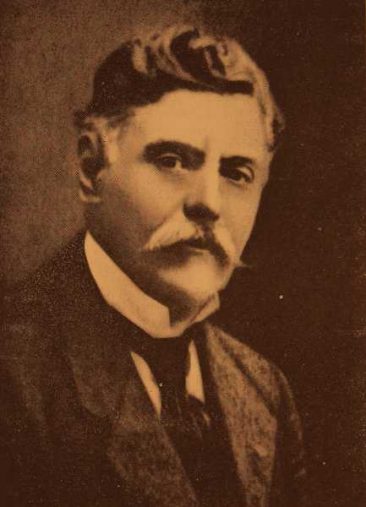
Ömer Engin LÜTEM
R. Ambassador
As a reflection of their hostile attitude towards Turkey, former Ottoman citizens of Armenians and Greek origin, who for various reasons migrated to the US, attempt to have the US Congress adopt resolutions that claim Christians are being subjected to discrimination and that demand the return of certain churches and religious buildings that are no longer in operation to their “rightful owners”.
As a result of the various initiatives on this matter, the House of Representatives adopted the resolution H.RES. 306 on December 14, 2011, and in essence called upon Turkey to do the following:
(1) end all forms of religious discrimination;
(2) allow the rightful church and lay owners of Christian church properties, without hindrance or restriction, to organize and administer prayer services, religious education, clerical training, appointments, and succession, religious community gatherings, social services, including ministry to the needs of the poor and infirm, and other religious activities;
(3) return to their rightful owners all Christian churches and other sites of worship, monasteries, schools, hospitals, monuments, relics, holy sites, and other religious properties, including movable properties, such as artwork, manuscripts, vestments, vessels, and other artifacts; and
(4) allow the rightful Christian church and lay owners of Christian church properties, without hindrance or restriction, to preserve, reconstruct, and repair, as they see fit, all Christian churches and other sites of worship, monasteries, schools, hospitals, monuments, relics, holy sites, and other religious properties within Turkey.”
Those who read this text come under the impression that there is religious discrimination in Turkey, that religious activities are being prevented, that religious education and the training of religious functionaries are not allowed, that all Christian sites of worship, monasteries, schools, hospitals are being confiscated. Yet there is no religious discrimination in Turkey. Nor is there an obstruction when it comes to religious matters. While it is true that some Christian properties were confiscated due to the violation of the provisions of the Law of Foundations, such confiscations constitute an exception. As to the Halki (Heybeliada) Theological Seminary that trains religious functionaries, its reopening will take place on the condition that it fully implements Turkish educational regulations, and on the condition that – within the framework of reciprocity – certain problems of the Turks of Western Thrace are solved.
As to the properties, some of the religious real estate that was confiscated in the past for having failed to implement legal criteria has been returned to their owners. The restoration of the Armenian places of worship with artistic and historical values, like the Cathedral of the Holy Cross in Van, have been completed and reopened for worship. Religious services have been allowed as well in the Sumela Monastery in Trabzon, and certain foreign metropolitans have been granted the right to become Turkish citizens in order to provide assistance to the Greek Patriarchate of Istanbul.
Such implementations have been well received by non-Muslims in Turkey and have garnered positive responses from foreign circles. Such circumstances raise questions about the reasoning behind the House’s adoption of the resolution and cast doubt about the House’s intentions. However, this issue has not been dwelled upon much since such resolutions are non-binding in their nature. Nevertheless, since such texts slander Turkey and its government, they serve as propaganda material against Turkey.
The fact that Turkey showed no noteworthy reaction to this resolution has led to this matter being brought up again with more tangible recommendations. A second resolution numbered H.RES. 4347 on the issue of church properties has been presented to the House on March 28, 2014. An interesting feature of this draft resolution is that it contains the heading “Turkey Christian Churches Accountability Act”. In fact, it is a draft resolution and not a law. It is probable that the idea is to quickly transform this into a law once the draft resolution is adopted.
As to the contents of the draft resolution, references are made to the H.RES. 306, and also to the H. RES. 1631 adopted in 2010 that was about the religious sites in North Cyprus. In essence, the draft resolution indicates, among other things, that the Turkish government has in recent years returned some churches to their owner but that much more remains to be done on this issue. On the other hand, it emphasizes the following points: that North Cyprus is under occupation by Turkey, religious minorities are being subjected to discrimination, Christian religious functionaries are being assaulted, Turkey does not recognize the international religious status of the Ecumenical Patriarchate, and Patriarchs are required to be Turkish citizens. After having touched upon these issues, the draft resolution goes on to demand the following:
“(a) In General.—Not later than 180 days after the date of the enactment of this Act and annually thereafter until 2021, the Secretary of State shall submit to the Committee on Foreign Affairs of the House of Representatives and the Committee on Foreign Relations of the Senate a report on the status and return of stolen, confiscated, or otherwise e unreturned Christian churches, places of worship, and other properties in or from the Republic of Turkey and in the areas of northern Cyprus occupied by the Turkish military that shall contain the following:
(1) A comprehensive listing of all [religious properties that have so far not been returned to their owners].
(2) Description of all engagement over the previous year on this issue by officials of the Department of State with representatives of the Republic of Turkey regarding the return [of these properties].
(b) Inclusion [of information relating to these in an] Annual Country Reports On Human Rights Practices And International Religious Freedom Report [that is published by USA].”
This draft resolution in its current form is in breach of international law, since it attempts to determine what procedures must be taken regarding certain religious properties with which the US has no legal affiliation and gives instructions to the Republic of Turkey (its representative) on this matter. By doing so, this draft resolution is violating the sovereignty rights of Turkey.
If there are demands relating to such properties, they must firstly be conveyed to administrative authorities in Turkey. If the desired outcome is not reached, this issue must be taken to court in Turkey, or failing that, it must be taken to international courts. Neither the US (including the Congress) nor any other state has any authority in terms of this issue.
Under normal circumstances, this draft resolution must be rejected on the grounds that it is in breach of international law, and the US State Department should itself object to this draft resolution on the grounds that it attempts to intervene in the internal matters of another country.
Even if this draft resolution is adopted and moreover turns into a law, it will still not be possible for it to be put into effect in Turkey. It is already evident though, that the adoption of this draft resolution will badly strain Turkish-American relations.
© 2009-2025 Center for Eurasian Studies (AVİM) All Rights Reserved
No comments yet.
-
THE US AND TURKEY-ARMENIA RELATIONS
Ömer Engin LÜTEM 17.06.2012 -
THE MONUMENT IN OTTAWA
Ömer Engin LÜTEM 23.09.2012 -
PRESIDENT OBAMA’S 24 APRIL STATEMENT
Ömer Engin LÜTEM 26.04.2013 -
THE FAIRYTALES OF BOGHOS
Ömer Engin LÜTEM 25.06.2014 -
NORMALIZATION AND RECONCILIATION
Ömer Engin LÜTEM 20.05.2011
-
 WHAT WILL RUSSIA DO IN RESPONSE TO THE REVISIONIST MILITARIZATION OF THE DODECANESE BY GREECE?
WHAT WILL RUSSIA DO IN RESPONSE TO THE REVISIONIST MILITARIZATION OF THE DODECANESE BY GREECE?
Teoman Ertuğrul TULUN 01.08.2022 -
US ELECTIONS AND THE ARMENIANS
Ömer Engin LÜTEM 05.11.2012 -
 ATTEMPTS AT DIASPORIZING TURKISH ARMENIANS - I
ATTEMPTS AT DIASPORIZING TURKISH ARMENIANS - I
AVİM 16.01.2019 -
 BIASED DISPARAGEMENT OF THE LATE NORMAN STONE BY TWO BRITISH DAILIES
BIASED DISPARAGEMENT OF THE LATE NORMAN STONE BY TWO BRITISH DAILIES
AVİM 16.07.2019 -
 THE ARMENIAN APOSTOLIC CHURCH’S US EASTERN PRELACY NARRATES THE TREASON
THE ARMENIAN APOSTOLIC CHURCH’S US EASTERN PRELACY NARRATES THE TREASON
Ahmet Can ÖKTEM 25.05.2021
-
25.01.2016
THE ARMENIAN QUESTION - BASIC KNOWLEDGE AND DOCUMENTATION -
12.06.2024
THE TRUTH WILL OUT -
27.03.2023
RADİKAL ERMENİ UNSURLARCA GERÇEKLEŞTİRİLEN MEZALİMLER VE VANDALİZM -
17.03.2023
PATRIOTISM PERVERTED -
23.02.2023
MEN ARE LIKE THAT -
03.02.2023
BAKÜ-TİFLİS-CEYHAN BORU HATTININ YAŞANAN TARİHİ -
16.12.2022
INTERNATIONAL SCHOLARS ON THE EVENTS OF 1915 -
07.12.2022
FAKE PHOTOS AND THE ARMENIAN PROPAGANDA -
07.12.2022
ERMENİ PROPAGANDASI VE SAHTE RESİMLER -
01.01.2022
A Letter From Japan - Strategically Mum: The Silence of the Armenians -
01.01.2022
Japonya'dan Bir Mektup - Stratejik Suskunluk: Ermenilerin Sessizliği -
03.06.2020
Anastas Mikoyan: Confessions of an Armenian Bolshevik -
08.04.2020
Sovyet Sonrası Ukrayna’da Devlet, Toplum ve Siyaset - Değişen Dinamikler, Dönüşen Kimlikler -
12.06.2018
Ermeni Sorunuyla İlgili İngiliz Belgeleri (1912-1923) - British Documents on Armenian Question (1912-1923) -
02.12.2016
Turkish-Russian Academics: A Historical Study on the Caucasus -
01.07.2016
Gürcistan'daki Müslüman Topluluklar: Azınlık Hakları, Kimlik, Siyaset -
10.03.2016
Armenian Diaspora: Diaspora, State and the Imagination of the Republic of Armenia -
24.01.2016
ERMENİ SORUNU - TEMEL BİLGİ VE BELGELER (2. BASKI)
-
AVİM Conference Hall 24.01.2023
CONFERENCE TITLED “HUNGARY’S PERSPECTIVES ON THE TURKIC WORLD"









